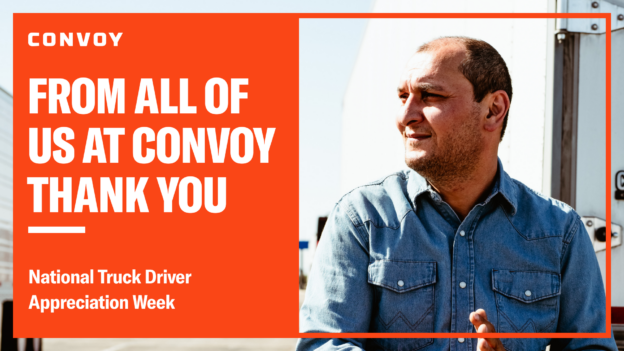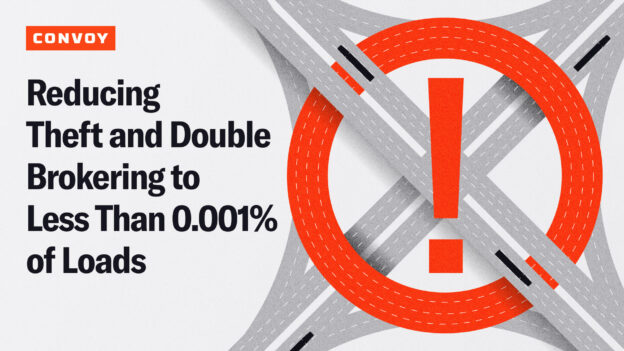Introducing Power-Only for Private Fleets
Carriers, Convoy News, Shippers • Published on August 17, 2021
Today, I’m excited to announce a new power-only freight service, exclusively available to private fleets. This expansion of our Convoy Go program provides shippers with access to the nation’s largest on-demand network of tractor capacity to haul their preloaded and empty dry van trailers. It also addresses one of the biggest issues associated with managing private fleets—the financial and environmental costs of empty miles.
Today’s announcement is the next natural step in reinventing drop-and-hook freight. We’re building on years of experience in automating the brokering of loads to power-only carriers, efficiently relocating trailers to meet fluctuating demand, and finding backhauls in our network through the use of machine learning. The result is a unique service that enables us to serve our customers in a new way while also reducing waste and inefficiency in truckload freight.
I’d like to share a bit more about the problems we’re addressing with this new service, and why we think flexible on-demand power-only capacity will be a game-changer for private fleets.
Hauling trailers is inefficient and costly
In the last couple of years, large retailers and manufacturers have increased their investments in private fleets. For these shippers, the massive capital and operational costs of in-housing transportation are outweighed by the benefits—namely, having direct control of their capacity and costs, and ensuring consistent and high-quality service. These benefits have only become more pronounced in the last 18 months as the pandemic has driven up truck costs and tightened capacity.
Today, trailers within private fleets number more than half a million, and there’s a constant need to haul them from one location to another. This includes moving product from distribution centers to stores, rebalancing trailer pools, and bringing trailers in for repair. The resulting demand for power-only capacity has accelerated in the last decade, as online commerce continues to grow and supply chains require more short-haul, rapid-response fulfillment.
The problem is that power-only capacity is often scarce. According to the National Private Truck Council (NPTC), private fleets have 4 trailers for every tractor, on average. As a result, many shippers operate with a shortfall of power units and drivers needed to haul their trailers.
When demand surges, these shippers often have to rely on the spot market, which brings higher rates, increased risk from working with unfamiliar carriers, and the possibility of service failure. The risk of service failure has only increased in recent years, as the number carriers offering power units for hire has declined over the past two years.
Beyond the power-only capacity crunch, private fleets incur significant financial and environmental costs in the form of empty miles. Today 40% of all private fleet miles are driven empty(1), wasting fuel and money while needlessly increasing CO2 emissions. In aggregate, private fleets spend billions of dollars annually on these empty trailer moves.
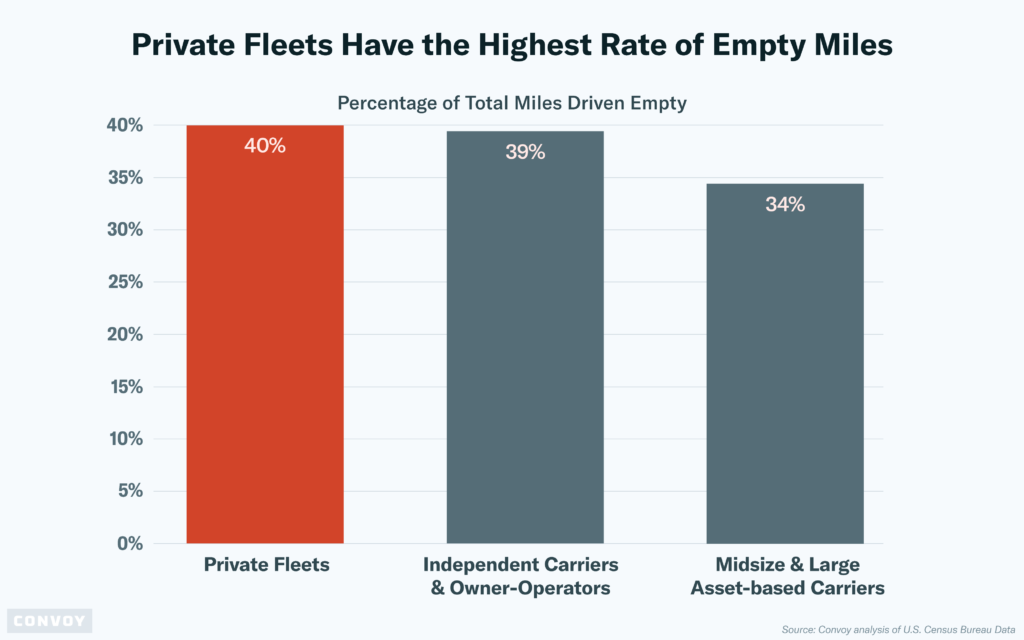
Save money and the planet with a new approach to power-only
Over the last three years, we’ve developed a unique, nationwide drop-and-hook program called Convoy Go. It consists of thousands of drop trailers that are shared among our customers and the tractors owned by carriers in our network. The program has experienced tremendous growth since we launched with demand from both shippers and carriers, and today there are more than 300,000 dispatch-ready tractors in our network that can haul drop-and-hook loads.
In our conversations with private fleets over the last several months, it became clear to us that the power units in our network could serve a new purpose, supplementing private fleet tractor capacity to help them move their preloaded and empty dry van trailers. In addition, we could help these shippers reduce their carbon emissions from empty miles through the use of backhauls and loadouts (a loadout is when we find a live load in our network to put inside an empty trailer en route to its next stop).
These conversations led us to pilot the power-only freight program with a number of private fleets, spanning specialty and big-box retailers, food and beverage manufacturers, and packaging companies. Based on the success of these pilots and the increasing organic demand for our power-only capacity, we’re excited to officially launch Convoy Go Power-Only for private fleets.
At the foundation of this new service are four innovations that help save our customers time and money while improving service quality and shipment visibility:
- Flexible tractor capacity – With more than 300,000 power units in our digital freight network, we offer the nation’s largest fleet of on-demand tractor capacity. And with our unique machine learning models that automatically match trailers to carriers, we can quickly flex capacity, providing reliable coverage as demand fluctuates. In many cases, we can provide next-day, and sometimes even same-day, service for these trailer moves.
- Automated loadouts and backhauls – With thousands of loads moving through our network every day, our machine learning models can often find backhauls or live loads to haul in empty trailers. Both result in cost savings to the company moving the trailer, while also reducing carbon emissions from empty miles.
- Industry-leading GPS tracking – More than 95% of the loads in our network can be tracked end-to-end and in real time based on GPS location services in our carrier app. By signing into our online platform, shippers can see the precise location of their trailers on a map, and share this information with their distribution centers and stores.
- Automated carrier safety and compliance – We’ve taken a unique approach to carrier safety standards that uses machine learning models to ensure that every load is hauled by an extensively vetted, high-quality carrier. The result is a crash rate 16% lower than the industry and 99.95% of loads being delivered without a cargo claim.
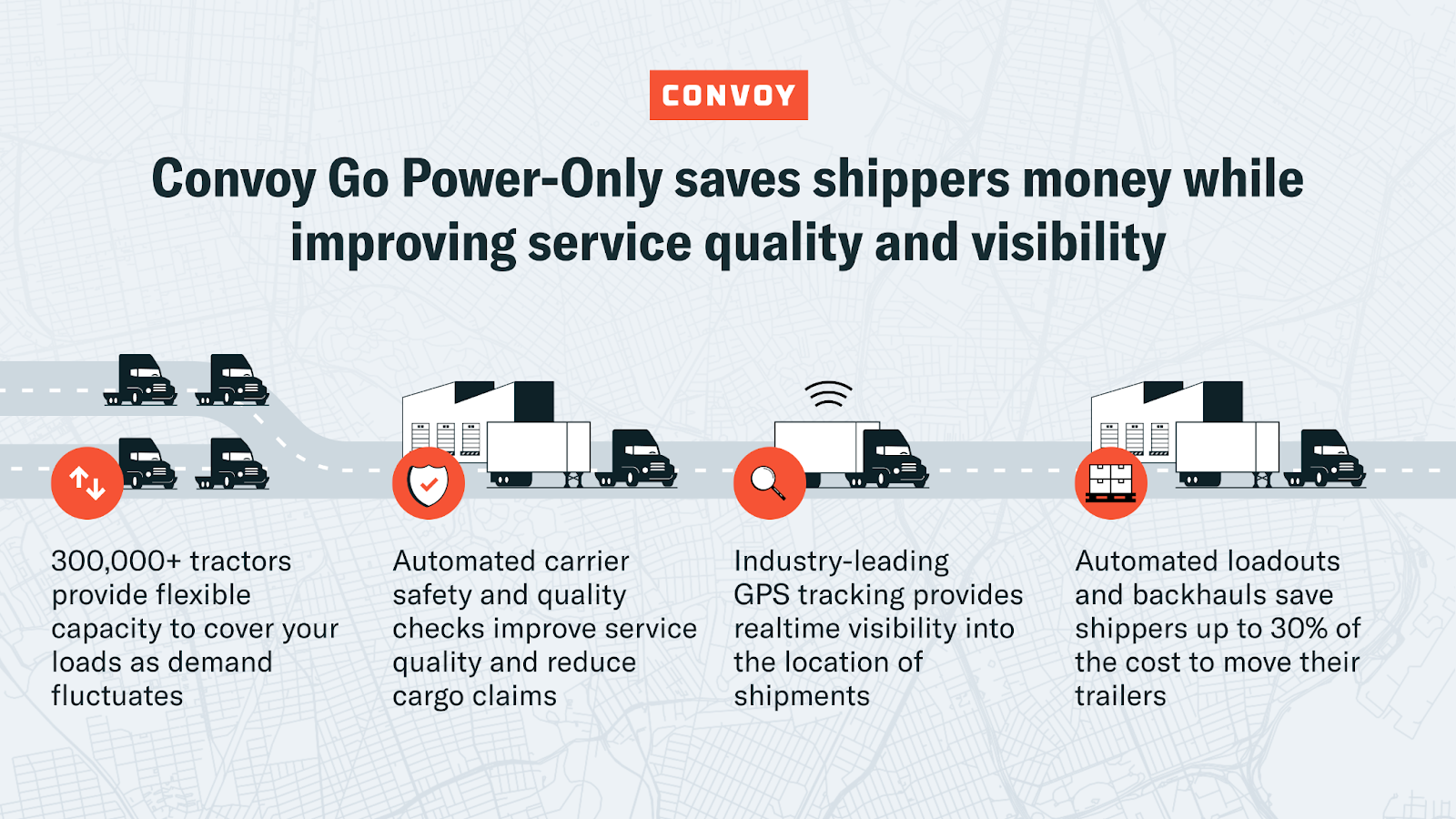
Loadouts bring the sharing economy to trucking
Loadouts are a unique part of our power-only service that benefit shippers, carriers, and the environment. For shippers, loadouts can significantly reduce transportation costs by sharing empty trailer space. For carriers, loadouts improve fleet utilization by eliminating deadheads. And for the environment, loadouts reduce CO2 emissions from empty miles.
In the example below, a traditional distribution center-to-store delivery results in a deadhead on the backhaul. This isn’t uncommon for private fleets, since trailers that deliver product to stores need to then be hauled back to the DC in order to rebalance the asset pool.
With Convoy Go, we can significantly reduce empty miles on the backhaul by finding a live load in our network that requires pickup in the vicinity of the store and drop-off in the vicinity of the DC. Our digital freight network automates the matching of loads to trucks, making this a seamless process. When a carrier uses our app to book the DC-to-store power-only delivery, they see that it’s already been paired with a loadout on the backhaul.
The use of loadouts at scale within Convoy Go brings the sharing economy to truckload freight. In recent years, platforms like Airbnb and Turo have made it possible for people with underutilized assets—in this case, rarely used bedrooms or mostly parked cars—to rent out their spare capacity. This has increased asset utilization and, by extension, lowered their carrying costs. The spare bedroom suddenly becomes a revenue source that offsets a monthly mortgage.
In the same way, loadouts improve the utilization of empty trailers. By sharing this empty space with another shipper, asset utilization increases and carrying costs are reduced. Convoy passes along these lower carrying costs to shippers, resulting in savings of up to 30% on trailer moves.
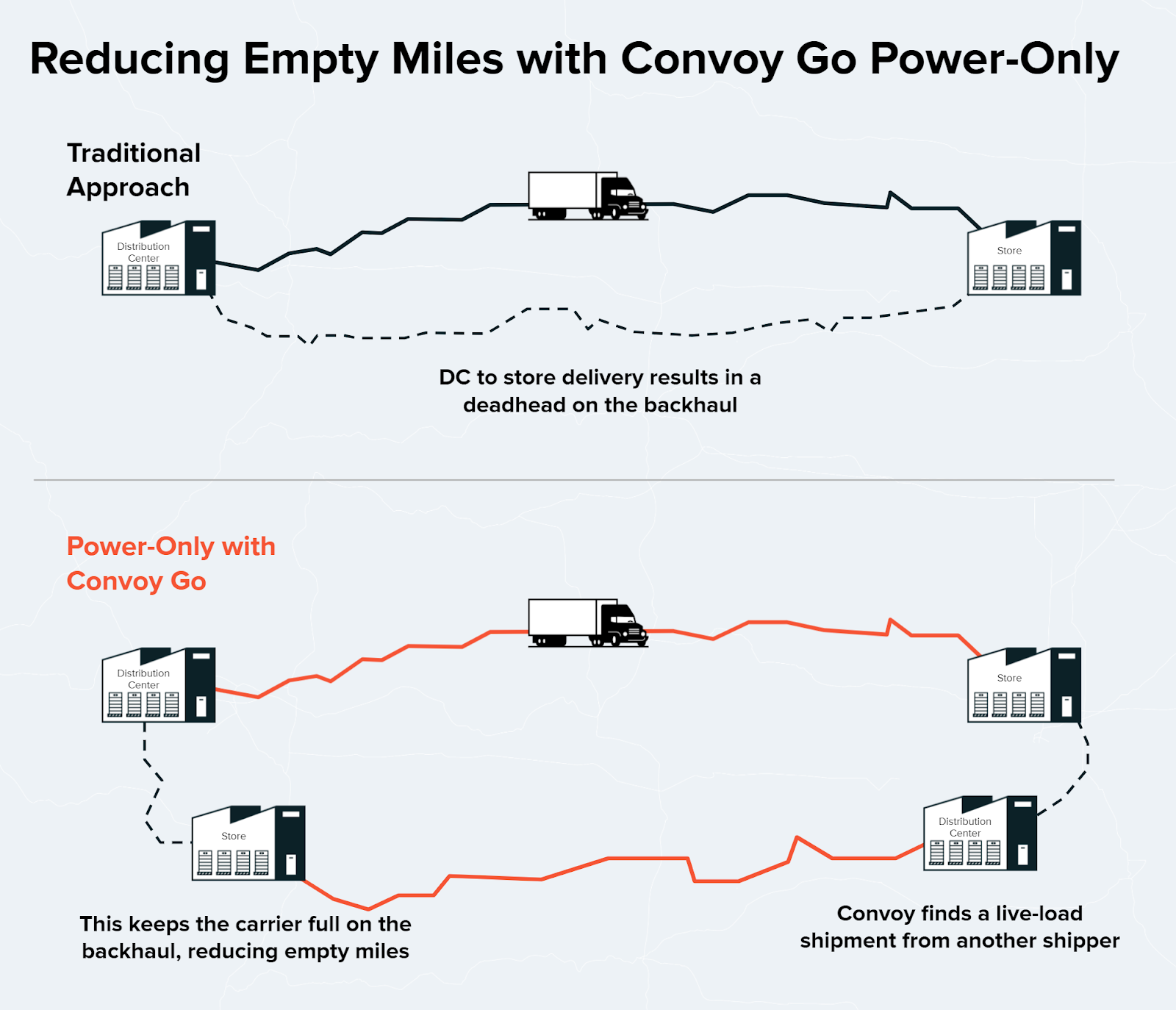
Try Convoy Go Today
Convoy Go Power-Only is available to private fleets across the nation. Interested in giving it a try? Learn more by visiting convoy.com/power, or drop us a line at sd@convoy.com.
(1) Convoy Freight Economics analysis of empty miles among private fleets, asset-based carriers, and independent owner-operators

